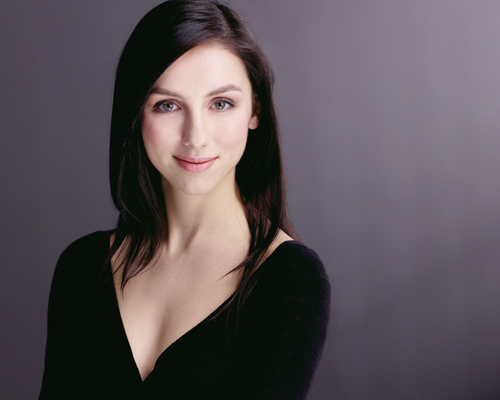Blog
Interview with Marie-Claire Marcotte
Marie-Claire Marcotte is a rising start of French-Canadian theatre. Actor and playwright, she has worked with a dozen theatre companies across the country since graduating from George Brown’s conservatory in Toronto, in addition to projects developed through her own company, Beaver Theatre. Graced with a mysterious smile and a communicative manner, she’s the one we needed to play Sarah, the hero of Statu Quo.
What made you want to work on Statu Quo with Théâtre la Seizième?
I’ve had the chance to follow the development of this play from the very beginning. In September 2011, I was invited to read a few excerpts during the biennial Zones théâtrales in Ottawa. Then I lent my voice to Adèle during a reading at the Festival du jamais lu in Montreal last spring. From my first reading, I’ve been intrigued by this script. It looks simple, but underneath there are layers of meaning to discover. The characters, the underlying themes and the plot are all more complex than they seem. I’m so happy to be here for the final step and to breathe life into Sarah this time around for the production.
You’ve been working in English and in French throughout Canada. What are the challenges and advantages of building a career in both official languages?
My bilingualism gives me more chances to work. I travel a lot and I’ve had the chance to discover the different francophone communities of Canada. It’s very enriching. I especially enjoy being exposed to the different francophone accents! Since my brain is constantly working in both languages, I sometimes have difficulty focusing completely on one language only. English words sometimes slide into my French vocabulary and vice versa. I think it’s the main challenge for many people living in a minority context.
You also write for the theatre. How has your writing work helped you as an actor in rehearsal?
I would have to say that it’s more my acting work that influences my writing, simply because the writing work is newer to me. As I write, I’m in my own world, and the opportunity to see what comes from the worlds of other artists is refreshing. I love discovering other word choices and punctuation styles. This is particularly true of Statu Quo. I know Gilles’ work well and I know he’s very precise and thoughtful as he writes. Knowing that makes this experience that much more enriching.
What do you think of Sarah, your character? Do you see yourself in her, or not at all?
Contrary to Sarah, for whom the future is anxiety-ridden, I’ve always know that I’ve wanted to be an artist. I think I was more like Adèle when I was younger. As a kid, I would do little shows at home! On the other hand, I do feel a connection with the questioning nature of my character. Sarah wants to do something constructive with her life, but she doesn’t know what, exactly, or how to go about it. Even today I still have those feelings occasionally. Am I doing the right thing? Am I on the right path? Behind the “What should I do?” question, she has the desire to come into herself and to use her energy to do something good. I really like that side of Sarah. She’s actively looking for answers to her questions and she’s very attentive to what’s going on around her.
What’s waiting for you after Statu Quo?
I’ll be finishing production on the remaining episodes of On the Heated Floor (http://www.ontheheatedfloor.com), a web series I created with my company, Beaver Theatre. On the writing side, I’m working on my second script for the theatre, entitled Peau. A writing period in Montreal with access to my dramaturg is what I’ll actually be doing after touring with Statu Quo.

